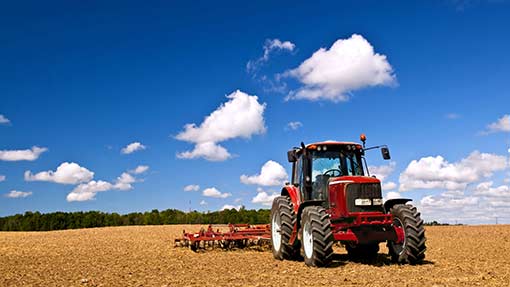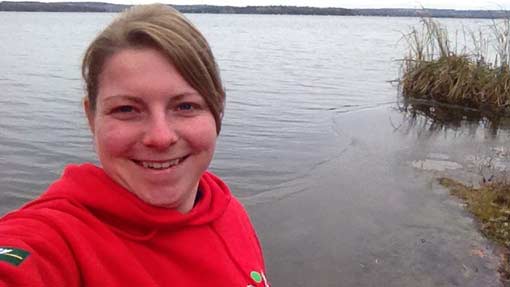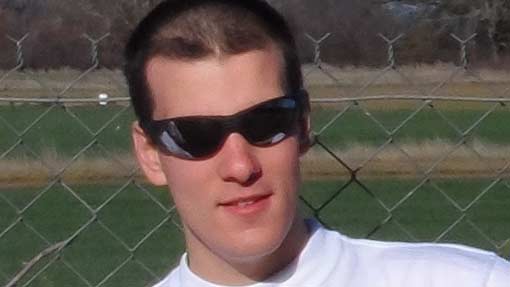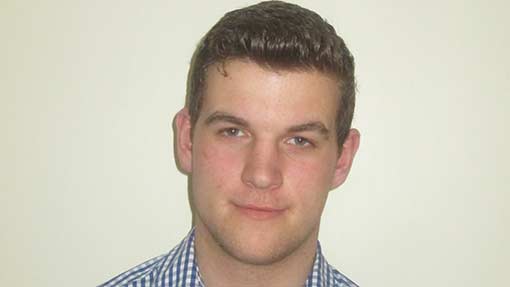Young farmers reveal their travel adventures

There’s a world of adventure waiting for intrepid YFC members, as Rhian Price discovers from three people who’ve taken advantage of their travel programme
The National Federation of Young Farmers’ Clubs offers members the opportunity to travel abroad through their travel programme.
From homestays with host families to working farm placements, there’s a wealth of adventures available.
Last year saw 46 members jet overseas to far-flung places such as New Zealand and Canada.
See also: 20 essential job-hunting tips for the agricultural sector
Lucky members get the chance to experience agricultural life in other parts of the world and learn new skills, explore new cultures, and create lasting memories and friendships.
The programme is open to those aged 18-26 (although eligibility varies depending on the trip) and trip costs range from as little as a few pounds to about £1,000, with sponsorship and full scholarships available in some cases.
So what are you waiting for? Get packing.
To find more information or to apply for one of the trips visit www.nfyfc.org.uk/TravelwithYFC/yfctravel
Name: Anna Mayo, 27, Gwent YFC, south east Wales
Destination: Ontario, Canada.
Distance: 6,392-mile round-trip.
Dosh: £800 for flights (which was sponsored) and $300 (£162) spending money.

Summarise your trip.
I went with Tom Jones from Pembrokshire YFC for two weeks on exchange. We stayed with two hosts in Ontario and I stayed an extra 10 days and travelled to Vancouver where I explored on my own. During the trip, we visited 12 dairy, beef and poultry farms and did social things in the evening. It was pretty hectic.
What was the highlight?
It was one big highlight. I loved going “trucking” with my first host Paul Glenn. We got to pick up grain from the combines and then went to the elevator and had a tour round the plant. I also was lucky enough to go up the CN Tower and I can now tick a visit Niagara Falls off my bucket list.
What did you learn?
I learnt a lot about Canadian Holstein genetics and I was able to see some of the best cows in the world. One dairy we visited, Crovalley Holsteins, sell embryos all over the world and sells cow at the Sale of Stars [where prices reached a massive $195,000 (£105,304) last November].In Canada, quota is a big issue. All farmers have to bid for it and there is hardly any available, it’s a hard industry to get into. As a result, the biggest farm we went to only had 130 cows in milk.
How have you applied your knowledge since returning to the UK?
I have really broadened my knowledge of agriculture, but it’s hard to put into practice, as the farming out there is quite different. Although I am looking into the bulls I use for AI in more detail now. I now select traits to improve cow conformation.
What did you most admire about their farming systems?
The tie stall barns I visited were spotless. You could walk around in trainers and because of this mastitis was a very rare occurrence.
What did you like most about their culture?
Ice Hockey is their sport. On my first night in Toronto the Toronto Maple Leafs were playing and the atmosphere in the bar was electric. When they score the CN Tower lights up. I was even lucky enough to watch them play live. I’m now a massive fan.
What advice would you give someone else considering an exchange?
Don’t hesitate in applying, just do it. Your time as an YFC member will soon pass you by, so don’t miss these opportunities, you may regret it if you do. An opportunity not taken is an adventure not had.
Were there any downsides to your trip?
The only bad part was waiting to be picked up by my first host. I was so nervous. It was only a momentary glitch. Five minutes after meeting Paul, I felt right at home.
What were the people like that you met?
Everybody I met was so friendly and welcoming and really keen to talk to me. I only spent a short amount of time with everybody but it felt as if I had known them all my life. I found it really hard to leave the exchange, but hopefully they will be coming over here for a visit sometime soon.
Would you go back?
Yes definitely. Before I left I was invited back and I cannot wait to go.
Name: Howard Kennerley, aged 26 from Ashley YFC, Staffordshire
Destination: Tasmania, Australia.
Distance: 21,540 mile round-trip
Dosh: £1,000 for flights, plus spending money.

Summarise your trip.
I flew into Launceston airport, Tasmania, and went straight to work on the family’s farm that afternoon to milk 1,000 cows. During the six weeks I stayed with different members of the Rural Youth Organistion of Tasmania and spent two weeks helping prepare for the Agfest Field Day [it is the equivalent of a county show and is organised by the youth group]. I also went to Cascade Brewery, which was set up in the 1830s by an ex-con, and Bonorong Wildlife Sanctuary, where I got up close to a kangaroo and saw koala bears and a Tasmanian devil, which you can only see in captivity now due to disease.
What was the highlight?
The highlight was the farmwork, but particularly when they let us take the bikes up the mountain quad trekking. This meant we could explore the area and the views were outstanding.
What did you learn?
They wouldn’t dream of spreading any muck [because they don’t house anything]. However, in my opinion, their soil is poor. It was really noticeable walking around their agricultural show where there wasn’t any silage-making equipment or muck spreaders – two major jobs they don’t do. They have extreme seasons, with prolonged dry and wet spells. If it is really dry, they have a big irrigation system to wet all the ground, and when it’s wet large drains run into dams ready for the dry season.
How have you applied your knowledge since returning to the UK?
It has made me think more about how we deal with our climate, especially given that the problems we’re experiencing are things they handle well. Perhaps we should consider building big ditches with pumps in to retain water when we have heavy rainfall. Then we can use that water when we’re experiencing droughts.
What did you most admire about their farming systems?
They have a better work-life balance than us. The fact they don’t house anything is a major benefit.
What did you like most about their culture?
The relaxed way of life.
What advice would you give someone else considering an exchange?
Do it. It is the best opportunity you can take and it is so cheap. If I’d had gone as a tourist, I wouldn’t have learnt half as much, because you go into someone’s house and become immersed in their culture, as opposed to staying at a youth hostel or hotel.
Were there any downsides to your trip?
Being on an aeroplane for 35 hours.
What were the people like that you met?
Genuine, easy-going, friendly folk that couldn’t do enough for you. If you had somewhere in mind you wanted to visit they would go out of their way to make it happen.
Would you go back?
Definitely. If finances and circumstances allows, I want to go back in a few years and meet up with the people I met on the trip.
Name: Simon Walgate, aged 19 from Bainton YFC, East Riding.
Destination: Limestone Downs farm, near Auckland, New Zealand.
Distance: 22,474 mile round-trip
Dosh: The C Alma Baker Trust sponsored flights, insurance and visa

Summarise your trip.
I completed a three-month working placement at Limestone Downs, mainly working with sheep and beef. There was a lot of drenching to do. But work was very varied because they were putting a new dairy unit up and we had tracks to lay and water troughs to site. It was a hive of activity with 50 loads of 60t hardcore coming in everyday. After the placement ended I spent an additional 20 days on the Kiwi experience bus trip. It is a hop-on hop-off service that goes all around NZ. They take you around all the touristy destinations and I went to Hot Water Beach, caving and to hot springs, to name just a few.
What was the highlight?
Lake Wanaka was definitely my most favourite places. It had spectacular scenery and we went skiing in the day and in the evening the night life really picked up.
What did you learn?
Dairying is big business in NZ and they’re expanding production to supply China. Limestone Downs was the first dairy unit to be put up on the flood plains and people were sceptical if it would work, because they were worried the drainage wasn’t sufficient.
How have you applied that since returning to the UK?
They had a device like a baby rattle that you shook and the noise it makes is really effective at shifting sheep in big droves. I’m now using this at home.
What did you most admire about their farming systems?
Because they’re extensive, it means there is plenty of manpower on the farm – they can afford it with the stock numbers.
What did you like most about their culture?
A lot of NZ people’s ancestors were immigrants so everyone knows what it was like to be new and they’re really friendly and welcoming to foreigners.
What advice would you give someone else considering an exchange?
If you have the opportunity to travel definitely do it while your young, because it’s harder to get away once you’re settled in a job.
Were there any downsides to your trip?
When I first arrived they didn’t have internet and I felt a bit isolated for the first week or two, until I joined the regional rugby team called Onewhero. NZ television is terrible too, because people are always outside.
What were the people like that you met?
The rugby team and people in the rural community were all really welcoming.
Would you go back?
I love the country and the people so I would definitely go back – but to explore rather than work.
